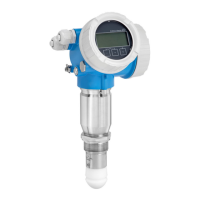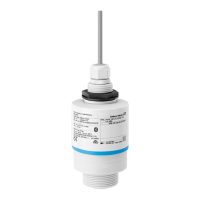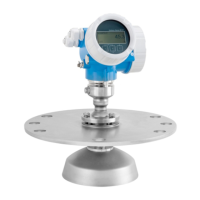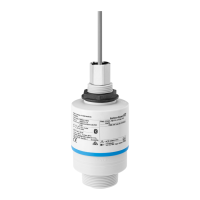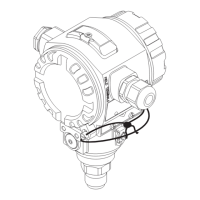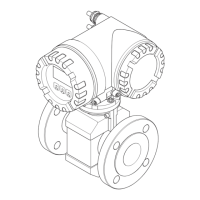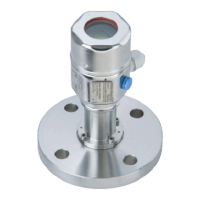Micropilot FMR62
Endress+Hauser 7
Function and system design
Measuring principle
The Micropilot is a "downward-looking" measuring system, operating based on the frequency
modulated continuous wave method (FMCW). The antenna emits an electromagnetic wave at a
continuously varying frequency. This wave is reflected by the product and received again by the
antenna.
A0032017
1 FMCW principle: transmission and reflection of the continuous wave
R Reference point of measurement
D Distance between reference point and product surface
The frequency of this wave is modulated in the form of a sawtooth signal between two limit
frequencies f
1
and f
2
:
A0023771
2 FMCW principle: result of frequency modulation
1 Transmitted signal
2 Received signal
This results in the following difference frequency at any time between the transmitted signal and the
received signal:
Δf = k Δt
where Δt is the run time and k is the specified increase in frequency modulation.
Δt is given by the distance D between the reference point R and the product surface:
D = (c Δt) / 2
where c is the speed of propagation of the wave.
In summary, D can be calculated from the measured difference frequency Δf. D is then used to
determine the content of the tank or silo.
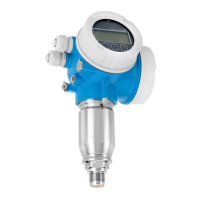
